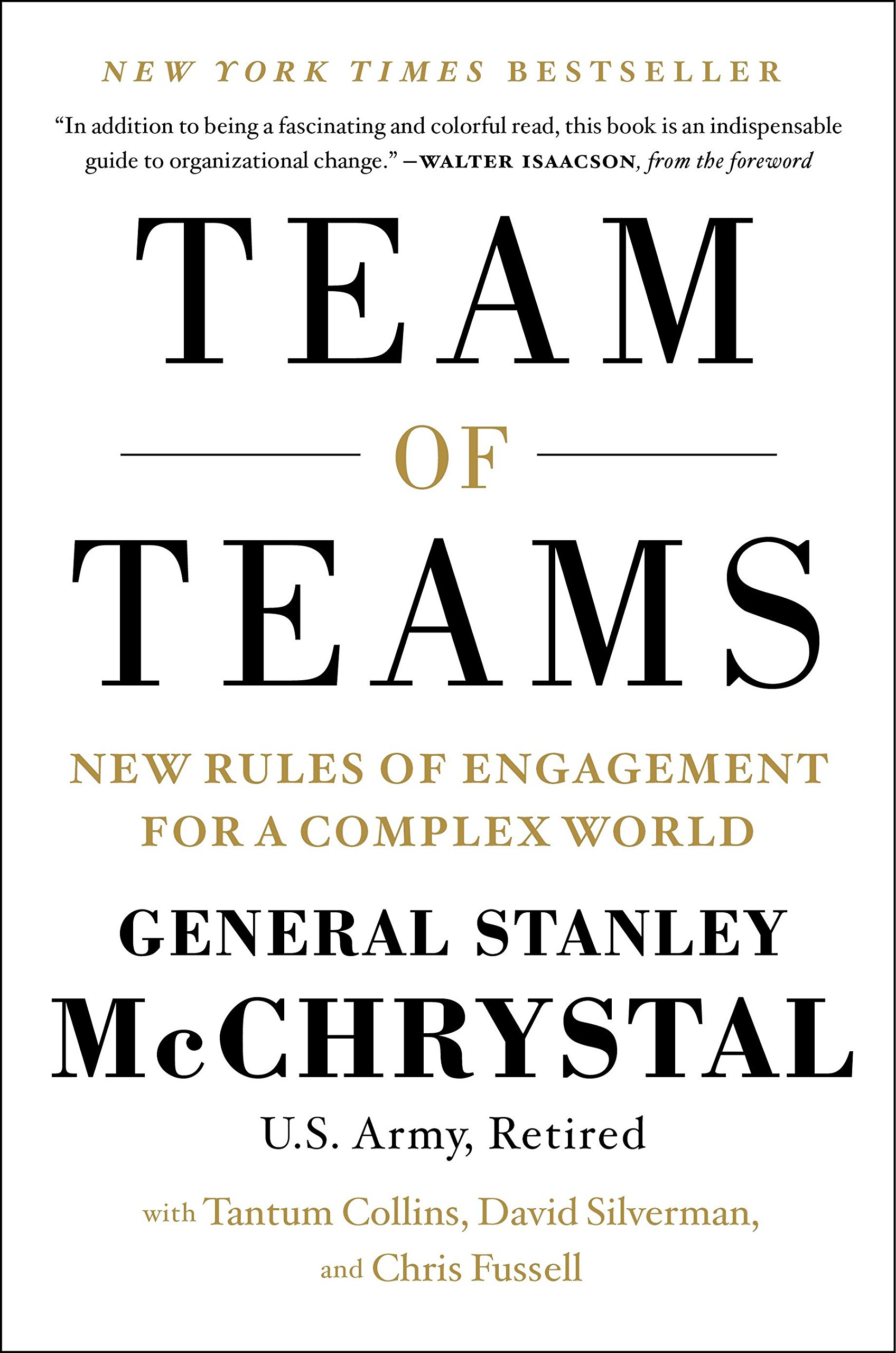Team of Teams Book Summary
New Rules of Engagement for a Complex World
TL;DR
In 'Team of Teams,' Stanley McChrystal presents a new leadership model for organizations to adapt to a complex world, emphasizing decentralized networks that promote agility and collaboration, drawing from his military experience and broader organizational insights.
What is Team of Teams about
'Team of Teams: New Rules of Engagement for a Complex World' is a pivotal exploration of how organizations can thrive in our ever-complex landscape. Authored by General Stanley McChrystal, who led JSOC during the War on Terror, the book details the challenges faced by traditional hierarchical structures when confronted with agile adversaries like Al Qaeda. McChrystal illustrates how JSOC transformed into a dynamic network, combining centralized communication with decentralized authority, enabling effective responses in real-time. This model transcends military applications, providing a blueprint for businesses, charities, and governments seeking resilience and adaptability in the face of complexity.
Team of Teams 6 Key Takeaways
Decentralized Networks
The traditional top-down structure is insufficient for today's fast-paced environment. Instead, organizations should embrace decentralized networks that enable quicker decision-making.
Shared Purpose
Creating a shared purpose among teams fosters collaboration and alignment, essential for achieving common goals in a complex landscape.
Flexibility and Adaptability
Organizations must prioritize adaptability over mechanical efficiency, allowing teams to experiment and learn from failures to innovate effectively.
Communication is Key
Robust communication channels are vital for ensuring that decentralized teams remain informed and coordinated, enabling effective responses to challenges.
Learning from Diverse Sources
Drawing insights from various fields—military, healthcare, and space—can provide valuable perspectives on overcoming challenges and enhancing organizational performance.
Empowerment of Teams
Empowering teams with decision-making authority fosters ownership and accountability, critical for rapid response in complex situations.
Team of Teams Videos
Team of Teams by Stanley McChrystal: A Free Book ... - YouTube
Top Team of Teams Quotes
- In an age of complexity, the way we lead and how we organize must evolve.
- The most successful organizations are not just a collection of teams; they are a team of teams.
Who should read Team of Teams?
This book is essential for leaders, managers, and anyone involved in organizational development. It offers practical insights for fostering collaboration and adaptability, enabling readers to navigate and thrive in complex environments.
Team of Teams Best Reviews
- McChrystal's insights are as relevant in the boardroom as they are on the battlefield, providing a transformative perspective on leadership and organization in the 21st century. — The New York Times
- A must-read for leaders at all levels, 'Team of Teams' challenges conventional wisdom and offers a refreshing approach to modern management. — Forbes
People also liked these summaries
Team of Teams FAQs
What is the main premise of 'Team of Teams'?
'Team of Teams' argues that traditional hierarchical organizations must adapt to modern complexities by implementing decentralized structures that promote agility and collaboration among teams.
How does McChrystal propose organizations should structure themselves?
McChrystal suggests organizations adopt a 'team of teams' approach, where smaller teams operate autonomously while maintaining strong communication and shared goals to enhance responsiveness in a complex world.


